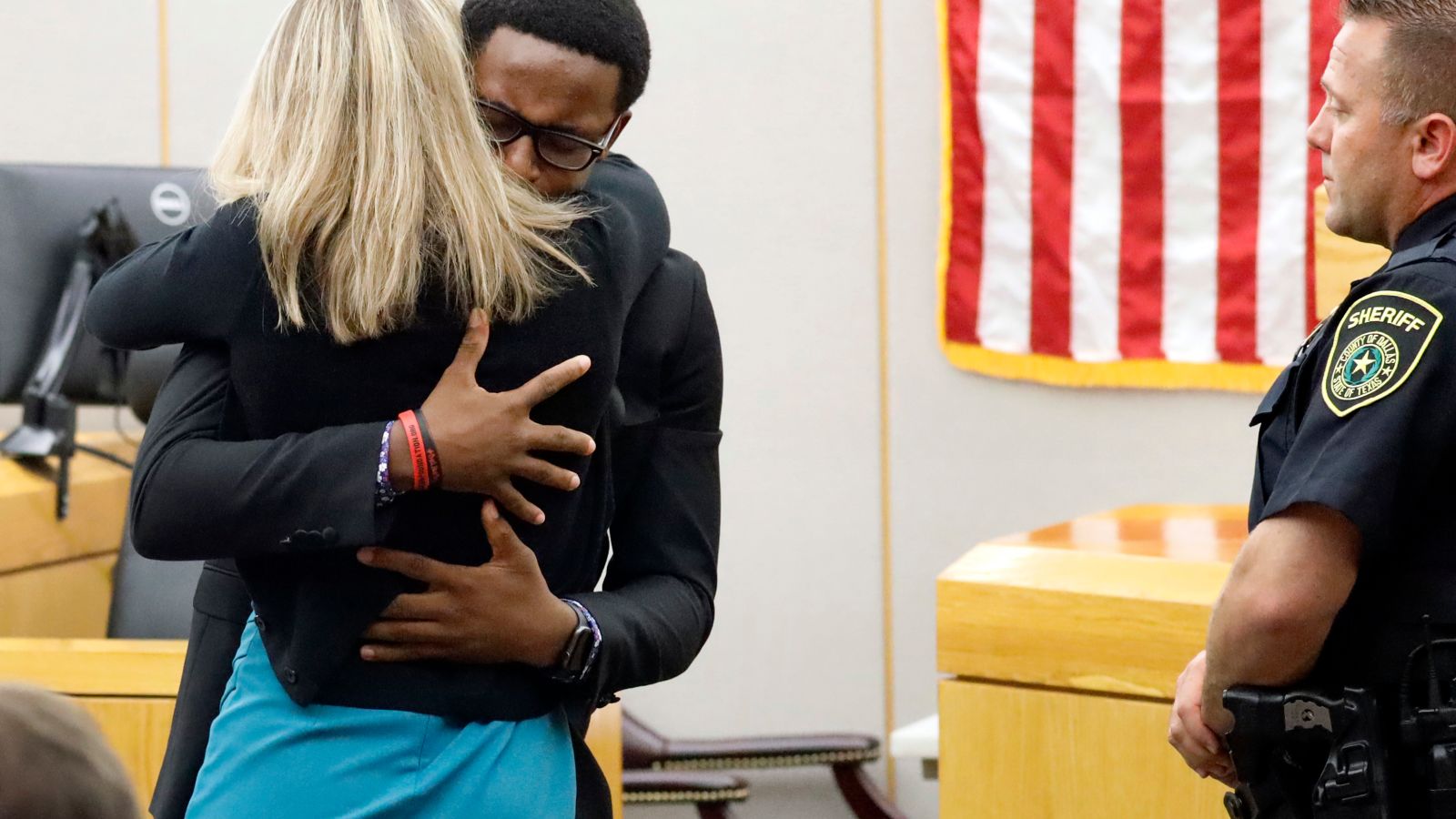Imagine this: a stranger barges into the home of a loved one of yours and proceeds to shoot him or her to death. When given the choice, would you forgive the killer? Most people would answer no to this question. However, forgiving the killer was precisely what the brother of Botham Jean did in court last Wednesday. Jean, a 26-year-old black man, was shot and killed in his own apartment by Amber Guyger, a 31-year-old white former police officer, when she mistakenly entered his apartment thinking it was hers. Seeing Jean in his apartment, she immediately assumed he was an intruder and proceeded to shoot him in the chest.
Guyger was sentenced to only 10 years in prison for taking away someone’s life without just cause. However, Jean’s brother, in an amazing act of forgiveness, embraced an emotional Guyger, saying, “I don’t even want you to go to jail. I want the best for you. Because I know that’s exactly Botham would want you to do.”
Sentiments outside the courtroom, on the other hand, were not so forgiving. There were protests and demonstrations on the streets of Dallas against this too-light sentence, with many viewing it as another extension of the partiality extended to white defendants and never to black defendants, and rightly so. A history of police brutality against people of color, and the often inconsequential repercussions that faced those police officers, has angered many who believe that Guyger’s sentence should have been much longer.
When asked about the decision of the sentence, one of the jurors in the trial (who remained anonymous) stated that “You can’t compare this case to any of those other officers killing unarmed black men,” because Guyger “showed remorse.” “I don’t think Bo would want to take harsh vengeance,” another juror said. “I think he would want to forgive her.” The first juror adds, “One thing that Botham can teach us all is that we should all love each other instead of hate each other.”
Whether or not Guyger should have received only a 10-year sentence, it is ultimately up to Jean’s family to decide whether or not to forgive her. And I believe that Brandt Jean’s incredible act of forgiveness extended toward the murderer of his brother is something increasingly rare in this world we live in, even as we continue to talk of fighting against hate. However, I can’t help but wonder, would this same extraordinary sense of compassion and forgiveness have been displayed if a black man was in the place of Guyger, and a white family in the place of Botham Jean’s? I believe that the answer is obvious enough.














Be First to Comment